A Brief History of English Sparkling Wine
12th November 2021
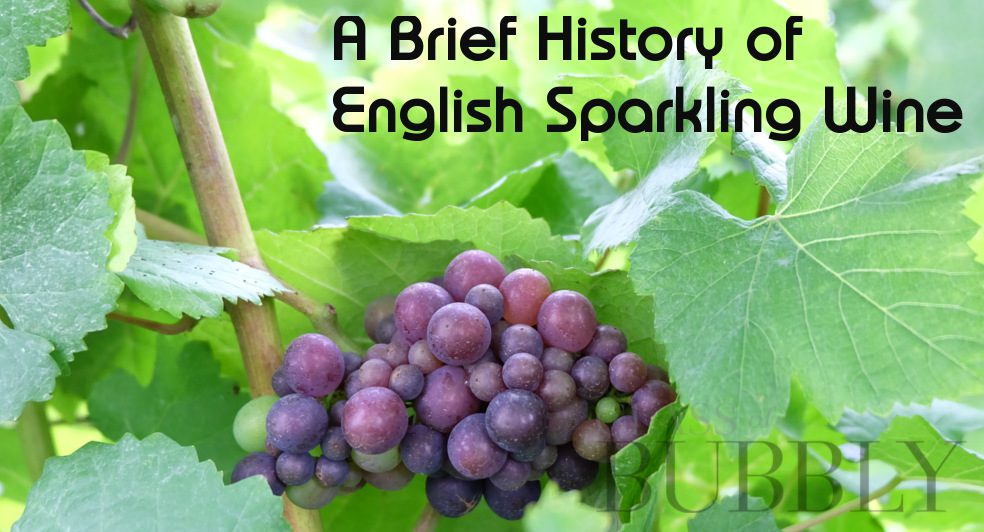
English Sparkling Wine holds much of its history within the last 50 years whereas it’s close sparkling wine region neighbour, Champagne, can boost a history of centuries. Even though some would say that Fizz made in England is a modern phenomenon compared to other famous sparkling wine countries and regions, you could also say that it is in fact packing a weightier punch per year of its existence…
“It is claimed that Dr Christopher Merrett, a 17th century cider maker from Gloucester, first devised the fermentation method which gives champagne its sparkle as well as inventing the hefty bottles that are needed to prevent the highly pressurised liquid from exploding.” glassofbubbly
Even though the origination of Champagne, the holy grail of sparkling wine to many, was discovered by chance by Dom Perignon in 1693 with his famous quote of ‘come quickly I am tasting the stars‘, the English are said to have invented the famous bubble in wine back in 1662. These facts are highly contested and disputed, but also we can add to the mixing pot that the earliest recorded sparkling wine is a Blanquette de Limoux that was invented by Benedictine monks in the Abbey of Saint-Hilaire, near Carcassonne, France in 1531.
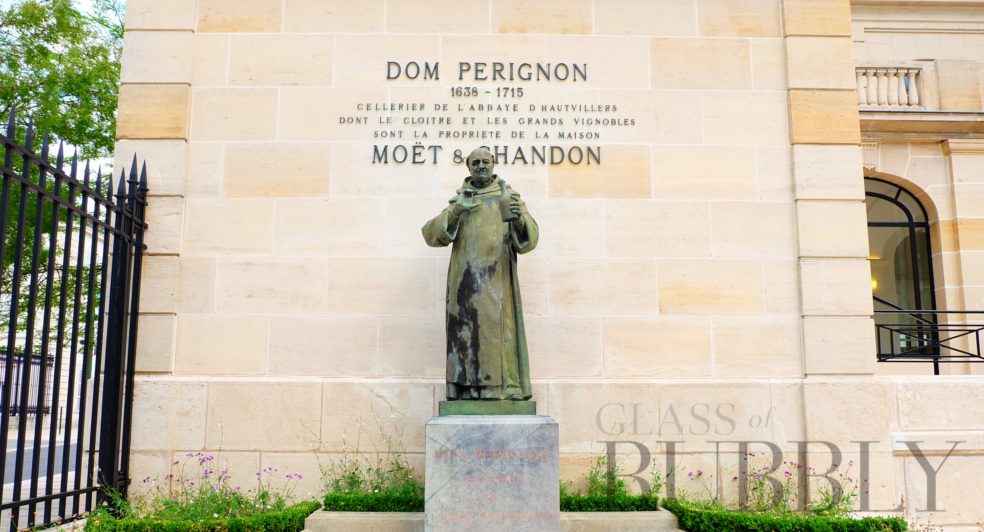
Dom Perignon statue – Avenue de Champagne, Epernay
The History of English Sparkling Wine
If the discovery of bubbles in wine can be awarded to England then we must date its history back to 1662, but the real history does not really take shape until some 300 years later. Prior to this though:
It is said that the Romans had tried to grow vines in England and without much success. Though they liked their wines and historical records shows many archaeological wine evidence on homeland excavations, they would have imported from Europe the main bulk of their wine consumption.
The Domesday Book, the Norman period, (1085-6) shares with us records that there were over forty vineyard locations in the country.
There after, though some records show an attempt to grow and produce wine, England was very much out of favour of making its own wine and instead concentrated on the importation channels from France and Italy.
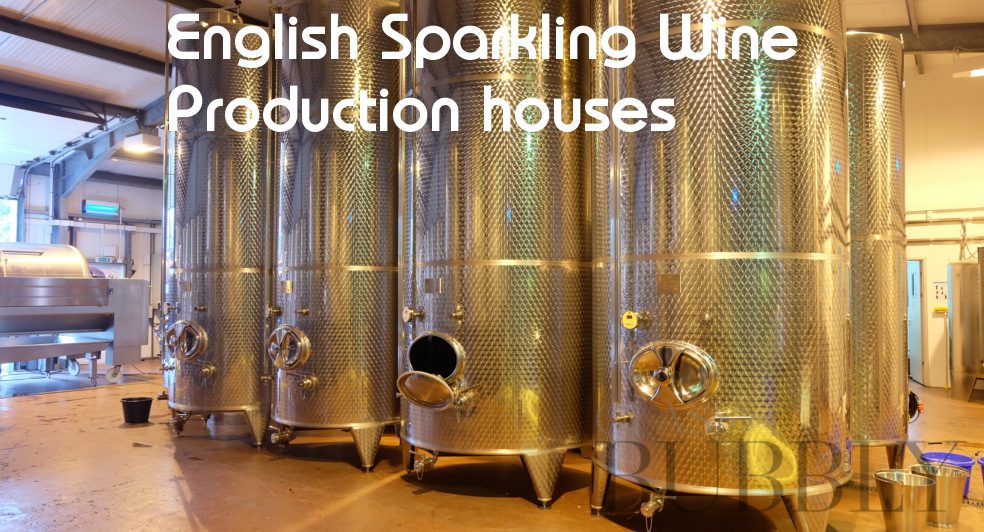
English Sparkling Wine Production houses – Bolney Wine Estate
Commercially produced wines really did not take hold until after the second world war. The cool climate grape growing regions, vines and expertise were being discovered, developed and positively evolving. Though most production was for family and friends of the growers and to sell locally, the ground work for more serious and commercial wine quality was being set.
Over the last few decades natural climate change has favoured the English terroir (southern wine regions of England only 200 miles from Champagne) with warmer temperatures. Not only are we now receiving the climate that was once blessing the Champagne region we also have always had the ground that is very much similar with limestone and chalk valleys in Kent, Sussex, Surrey – So what was once in Champagne is transferring its way to England…
Of course, Champagne has its history and importantly much experience and knowledge which can not be bought. Family Champagne growers can have generations of knowledge in their blends with a far greater understanding of their vineyards and vines. England is still playing catch up though we are now attracting the expertise over from the continent with some wine makers here now being ex Champagne producers.
What was once seen as the butt of many jokes, English wine (and more so English Sparkling Wine today) has really caught up with other famous sparkling wines from across the world. In recent years new and innovative wineries have launched and evolved with many winning top industry awards – in 2021 the world’s best sparkling wine was an English Sparkling Wine after several days of judging in London (Fox & Fox winery in Sussex)
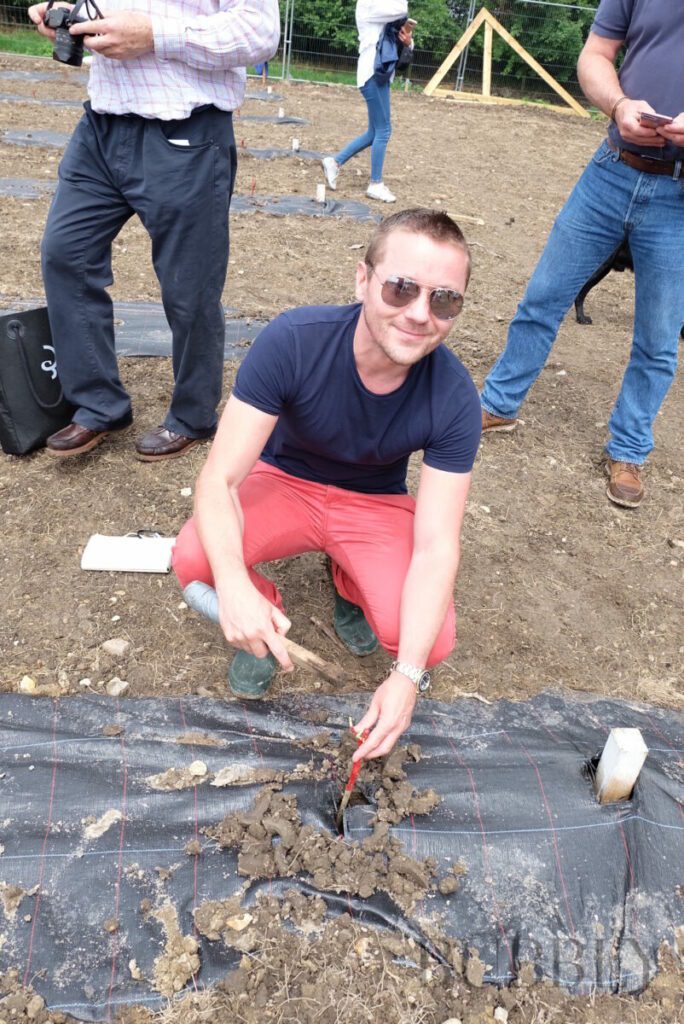
Planting new vines – Jenkyn Place in May 2018
It’s only constraint today being that the production levels (though growing annually) is still very much behind other old world wine country amounts – Annual Sparkling Wine production in England (over 70% of wine made in England is sparkling) from some 600 + wineries is around 4 million bottles. Many wineries will be producing between 20,000 to 50,000 bottles annually with fewer producing six figure amounts annually. Most of the production is consumed here in the UK though global distribution is growing as the positive rumours on the quality expands.
Back in 1951 at Hambledon in Hampshire, with vines planted by Major-General Sir Guy Salisbury-Jones, the journey of wine production to sell commercially began. It wasn’t unit the 1960’s were in full swing that further expansion really took hold across the country as confidence in this sector grew. From this era onwards and especially from the year 2,000 and beyond the growth of vineyards has continued with greater confidence, higher quality and greater profits.
It can be said that the best way to make a small fortune in the wine business is to start with a big fortune, but English Sparkling Wine gives many home growers a greater possibility of success. Compared to other famous sparkling wine regions and countries of the world, especially Champagne, the land value is far less in England mostly due to fact that you can produce wine in any and most locations whereas the Champagne wine growing region is highly restrictive. An hectare in the Champagne region can cost around £1,000,000 and yet a hectare in England could cost £100,000 (vines planted and established).
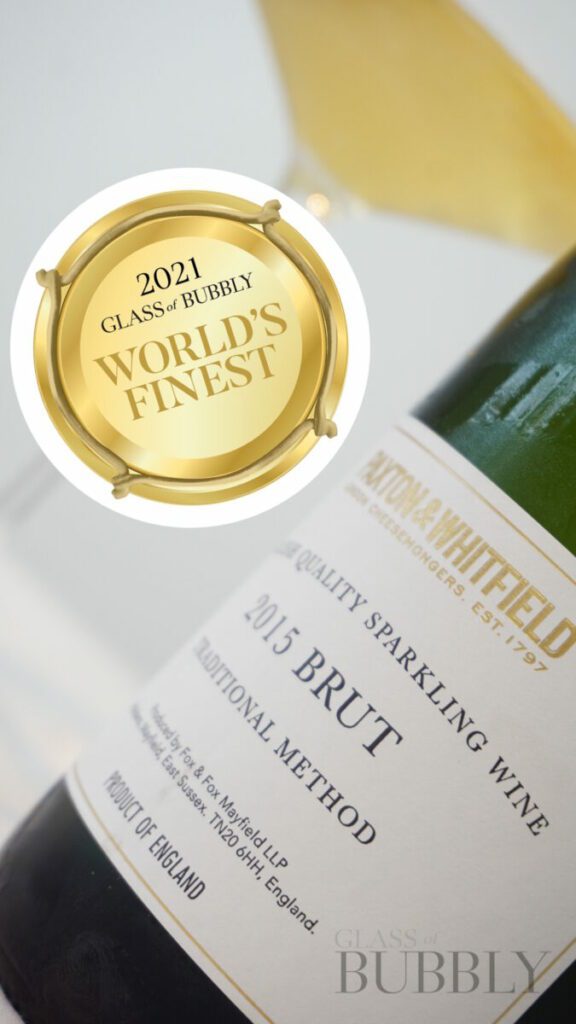
The Worlds Best Sparkling Wine 2021 – Fox & Fox 2015 Paxton & Whitfield Blend
Moving towards the future it is certainly very rosy for English Sparkling Wines. With a growing reputation and quality the global markets are very keen to introduce them to their markets to run alongside Champagne and the likes of Trento DOC, Cava, Method Cap Classique and other traditional method production sparkling wines. Similar price points, equalling qualities and more to come tells me that its not only going to be a great cup of tea that we are famed for, we can make a damn good glass of bubbly too…
![]()
Christopher Walkey
Co-founder of Glass of Bubbly. Journalist and author focused on Champagne & Sparkling Wines and pairing them with foods.
